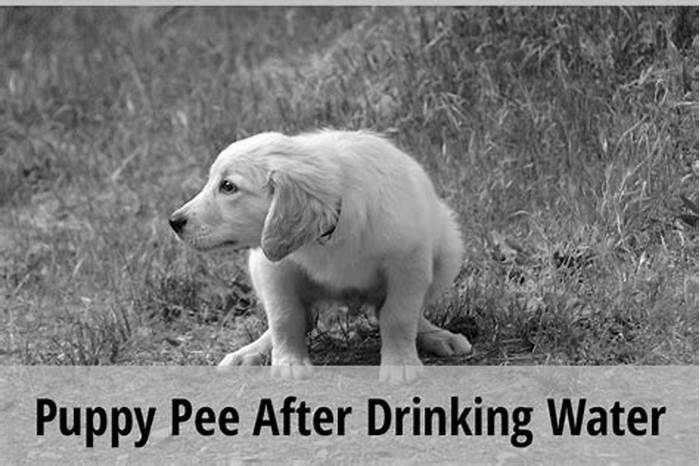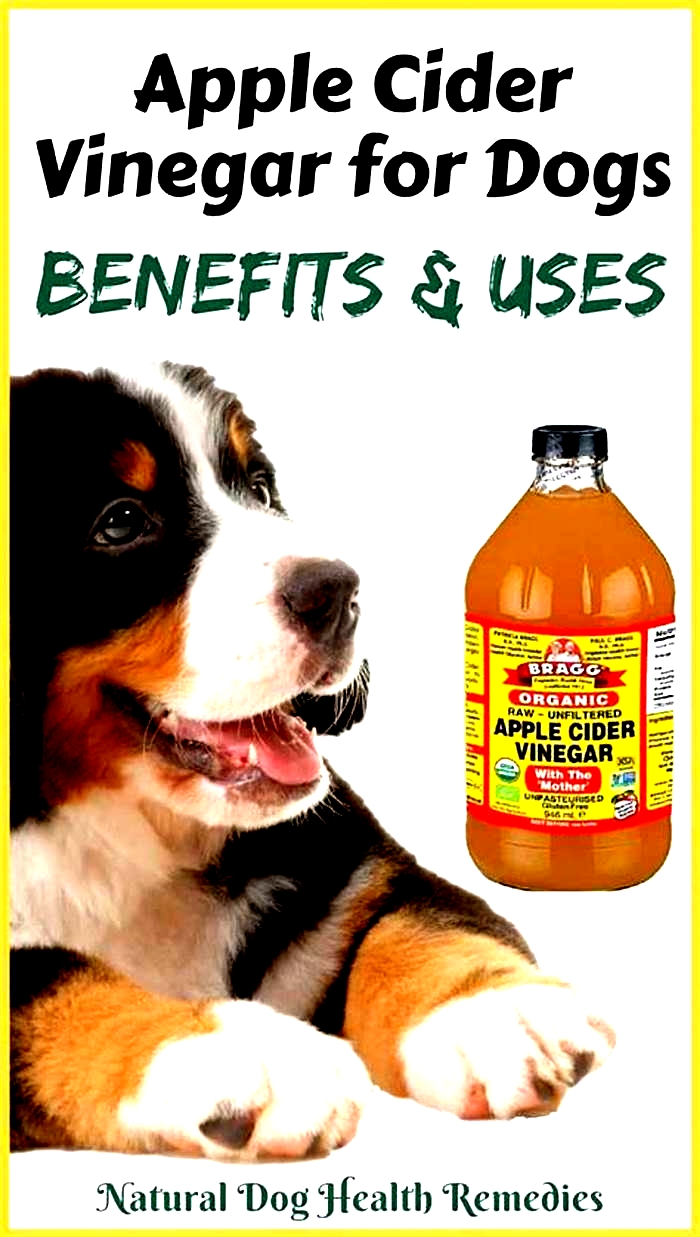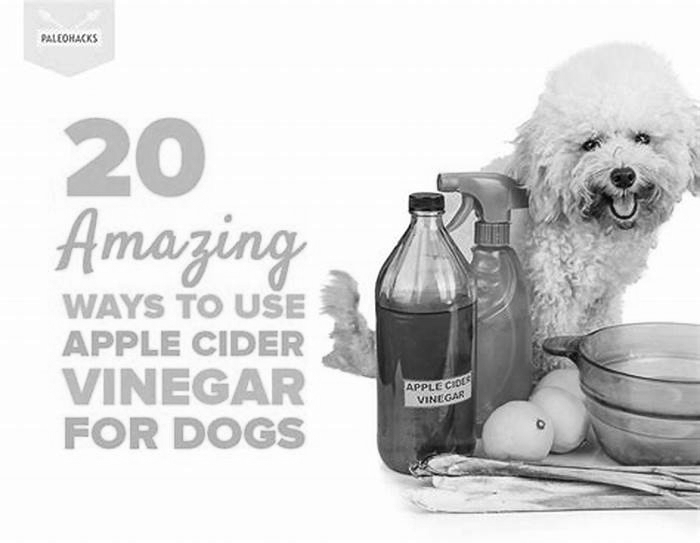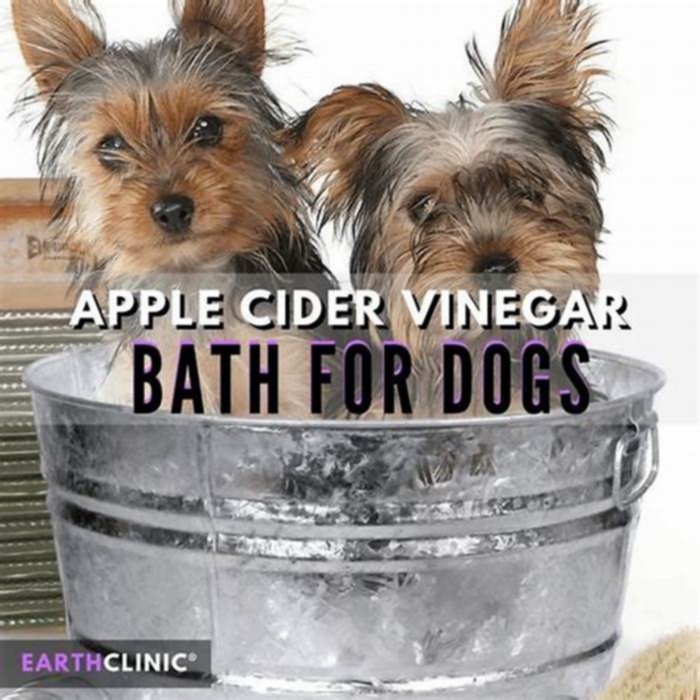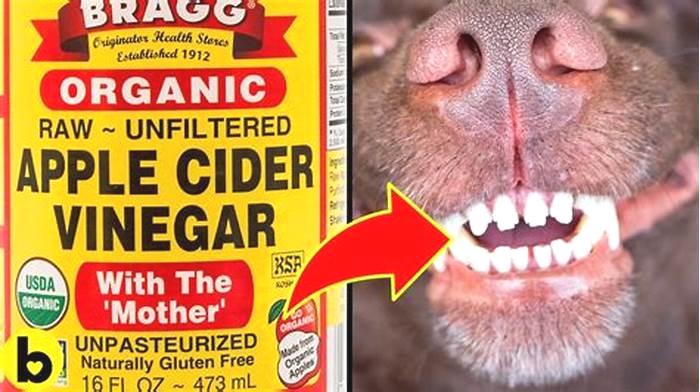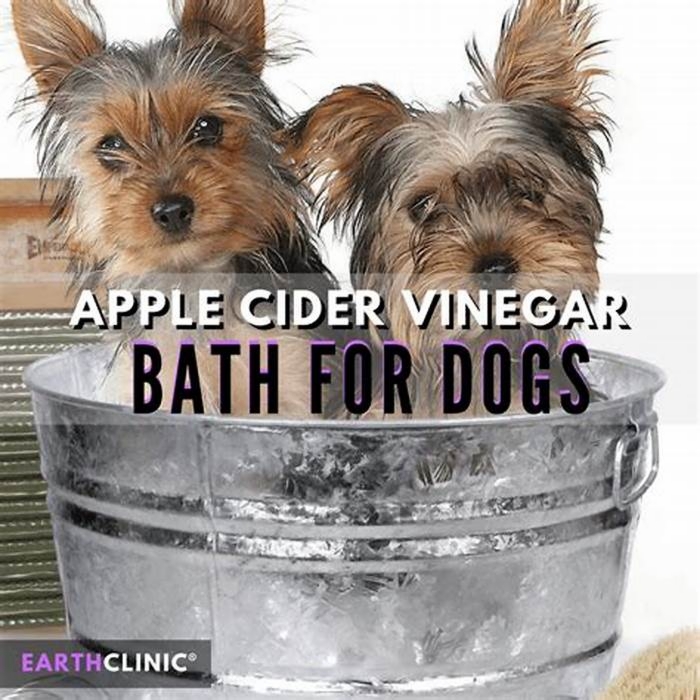Can I put vinegar in my dogs drinking water
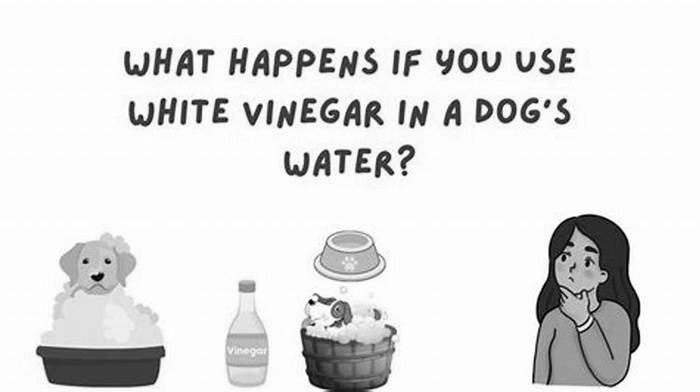
White Vinegar in A Dogs Water Best Use Cases
Vinegar is one of the essential items in your kitchen that always comes in handy in your cooking and non-cooking ventures, especially cleaning. You may wonder, what will happen if I use white vinegar in my dogs water? Is it safe to clean my poochs fur with the vinegared water?
No doubt, there are many products out in the market that can do the same job, but they contain hazardous chemicals. They might be good for some time but arent exactly healthy for long-term use. So, you wont mind a safer replacement that comes at a far less price. But to be exact, can white vinegar be that safe option if you dilute it with water and apply it to your furballs skin?
A short and quick answer is yes it can be a safe option. You can use the solution and get some fantastic results, but you need to practice caution. So, in this guide, well be talking about using white vinegar in dog water and how beneficial or harmful it can be. You will also know whether your fur buddy can drink it or not. So, read till the end to learn it all!

Can I Use White Vinegar in My Dogs Water?
Yes, you can use white vinegar in your dogs water. In fact, it has produced great results for many pet parents. For instance, it tremendously helps in maintaining healthier skin and fur and even helps toget rid of the skunk smell. It always remains an excellent alternative to other hazardous chemical solutions. However, ensure your dog doesnt ingest any amount of the solution as it may cause stomach upsets and some other gastrointestinal problems. To be on the safe side, you should use the solution for bathing or cleaning purposes only.
It is important not to confuse white vinegar with apple cider vinegar because white vinegar in dog water is used for cleaning purposes only. On the other hand, apple cider vinegar is edible and has some health benefits if used in a small amount. However, your dogs age, breed, and other physical factors matter. And most importantly, you need to test beforehand whether your dog is allergic to vinegar or not.
So, you can definitely use white vinegar in the dog water, and it should be used externally only. Dont let your pooch taste or smell it because if ingested, it can cause some health issues. After each use, make sure to waste the solution properly or keep it out of the reach of your furball.
What Does White Vinegar in Dogs Water Do?
White vinegar benefits your dog in various ways if you add it to your dogs water. As itll help in cleaning his ears,keeping fleas and ticks away, removing foul odors, treating itchy paws, and much more. You can also use it for controlling and restraining them from going to vulnerable places like your flower garden. However, the main benefits lie in their health improvements.
Like human beings, your buddy can not clean their ears by themselves. And many pet parents can ignore this fact easily if they are not following a comprehensive care routine. But its really dangerous as harmful bacteria grow in the dirty ears and can cause health issues. With a 50/50 mixture of vinegar with water, its all a breeze. You can use the same mixture to get rid of fleas and ticks. For easier application, use it through a spray bottle. The same goes for the stinking problem. Mix one part of white vinegar in two parts of water and bath your dog in it. Dont worry about the light pungent smell because the vinegars odor will fade away once it dries off.
White vinegar can help with itchy paws as well. Mix equal amounts of water and vinegar, apply it to the affected paws and let it dry by itself. So, white vinegar can solve many of your furballs problems. However, if your home remedies dont work out, contact your veterinarian immediately instead of waiting for the condition to get severe.
Can Dogs Drink Water with White Vinegar in It?
Well, the answer is yes and no. Vinegar may be safe for humans to consume, but dogs digestive system works differently. Although your pooch may survive a small dose of vinegar in water, you cant really add it to his daily diet. If your buddy consumes more than the safe amount, it can cause severe health issues such as upsetting the intestinal and digestive systems. On the other hand, before using it for your dog, ensure that he is not allergic to white vinegar.
Although white vinegar should be used as a cleaning product only and placed far away from the canines reach, in rare cases, you can feed it with water to your pooch. The crucial factor to consider is that the intake should be really minute, so it doesnt hurt him. If your dog is not reacting well and showing signs of gastrointestinal upset, stop the dose and let your vet know the whole situation.
Dogs suffering from kidney diseases already have pH imbalances in their bodies, and drinking white vinegar can further aggravate the situation. So, giving it to an ill canine is a big NO. In any case, you can ask your vet for recommendations and discuss whether it is safe to provide a small amount.
Conclusion
So, white vinegar in dog water is safe to use for cleaning purposes only or if applied externally. But if the pooch intakes some amount, there may be consequences that differ from dog to dog. You can give your canine some amount of it, but it is always best to contact your veterinarian first and ask for his recommendations. Now you know how you can use white vinegar in your dogs water, your furball should remain safe. But remember, if any of your methods dont work, never hesitate to contact your vet.
Hi I'm Brad, the founder of bulldogpapa.com. Having been a vet of 6 years I work alongside our team to provide valuable insight into your dog's health. I have a frenchie myself named Senzu who is my pride and joy!
View all posts
How much vinegar do I put in my dogs water? Tips and Tricks
How is Apple Cider Vinegar Different From Other Vinegars?
Its name comes from the Latin words vinum (which means wine) and acer (which means sour). Vinegar can be made from any liquid that contains sugar, which includes everything from fruit juice to plain sugar water. Within a few days of being exposed to air, naturally occurring or added yeasts cause the sugar to ferment, turning it into alcohol. If not interrupted, fermentation continues in response to naturally occurring or added acetic acid bacteria until all of the alcohol becomes acetic acid. This is how wine, beer, and ale are used to create wine and malt vinegars. Some vinegar factories shorten the fermentation process to just two or three days by using modern bacterial cultures and special pumps, but traditional vinegars valued for their culinary use are still made the old-fashioned way.
However its made, vinegar has a distinctive fragrance and a low pH. On the pH scale, water is neutral at 7.0, tomato juice is acid at 4.1, distilled white vinegar is more acid at 2.4, and the pH of lemon juice is 2.2. Apple cider vinegar tends to be less acidic, with a pH between 4.25 and 5.
One of the earliest known vinegars was made 5,000 years ago in Babylon from fermented dates. In ancient Rome, fermented rye, figs, grapes, and dates were popular ingredients. Todays vinegars are made from corn, barley, and other grains; grapes; apples; and other fruits.
According to the Vinegar Institute, an international trade association representing vinegar manufacturers and bottlers, worldwide vinegar sales are now approaching $225 million annually, with the fastest growth in organic vinegars. Nearly half of the vinegar sold in North America is balsamic, with red wine vinegar the next most popular at 13 percent and cider vinegar tied with rice wine vinegar at 8 percent each.
Only 1 percent of sales go to distilled white vinegar. However, distilled white (usually made from corn) and distilled apple cider are the most familiar supermarket vinegars. These inexpensive vinegars are filtered and pasteurized to make them sparkling clear. Better-quality wine, cider, or malt vinegars are often aged for years in wooden barrels to improve their flavor and left unfiltered and unpasteurized.
To vinegar connoisseurs, theres a world of difference between distilled or rapidly produced vinegar and traditionally made vinegars that are brewed slowly in small batches and aged to perfection. Some gourmet vinegars cost over $200 per 100 milliliters (about 7 tablespoons).
Traditionally made organic apple cider vinegar is widely sold and far less expensive than gourmet balsamics, but it too is valued for its culinary uses. Some popular brands, such as Bragg, Spectrum, Eden Organics, Solana Gold Organics, and Dynamic Health, are made from organic apples that are crushed to make cider, then aged in wooden barrels.
Because it is raw and unfiltered, this vinegar is not clear like distilled vinegars. Instead, it contains a dark, cloudy substance that resembles dusty cobwebs. This substance, called the mother or mother veil, consists of naturally occurring pectin and apple residues whose protein molecules are connected in strand-like chains. As the Bragg website explains, The presence of the mother shows that the best part of the apple has not been destroyed. Vinegars containing the mother contain enzymes that other vinegars may not contain due to over-processing, filtration, and overheating.
Apple cider vinegar is usually light golden brown or orange in color. While the acidity of homemade cider vinegar varies, most manufacturers maintain a 5-percent acetic acid level, which is recommended for the safe pickling and preserving of low-acid foods.
Apple Cider Vinegar for a Dogs Ears

Apple cider vinegar works by rebalancing the pH. A popular home remedy for ear infections in dogs, apple cider vinegar cleans and neutralizes bacteria when used topically.
Many dogs with skin allergies also develop ear infections. Apple cider vinegar can clean a dogs ears and rebalance the skin pH, but it will also dry out ears to combat yeast and bacterial infections. When using apple cider vinegar around your dogs ears, remember to never use it on raw or open sores since it is an acid and will burn and cause irritation. Always dilute the vinegar to at least a 50/50 mixture with water.
Use half apple cider vinegar with half purified water, soak a cotton ball, and wipe out the ears until there is no more gunk coming out of the ear. Do not pour the mixture directly in the ear canal. Some ear infections have ruptured ear drums, and if this mixture gets into the middle ear, complications like vestibular disease or exacerbation of a middle ear infection can develop. If there are any signs of sensitivity to the dog when using this dilute mixture, stop applying the mixture to the ear and seek veterinary advice.
Is Apple Cider Vinegar Good for Dogs?
When given in the right dosage, dogs that are given apple cider vinegar may benefit from a healthier gastrointestinal (GI) system, better coat quality, fewer allergy symptoms, and more. This is because apple cider vinegar helps reduce the inflammation in the body and supports the immune system by balancing pH levels.
Your dogs pH levels represent one of the most important indicators of his health. Apple cider vinegar is slightly acidic with a pH of 3.1 to 5. Since the optimal pH range for a dog is around 6-6.5, not every dog may benefit from oral ingestion of apple cider vinegar.
Many dogs have adapted to eating high-protein diets, but some processed diets that are higher in grains can cause a dogs system to be too alkaline (pH higher than 7). Diseases that can result when your dogs pH is out of the healthy range include urinary crystals, bladder stones, digestive disorders like vomiting/diarrhea, and even allergies. These dogs tend to show positive results when given apple cider vinegar, because it brings their pH down into a healthier range. This return-to-balance supports optimal digestion by increasing the stomach acid required to break-down fats, proteins, and carbohydrates in the food.
Beyond affecting internal chemistry, apple cider vinegar also has disinfecting and cleaning properties. Many people use vinegar as a natural cleaning product, but it can also be used to treat topical issues like skin allergies and ear infections in your dog. Read on to learn more about how to administer it safely and potential side effects to look out for.
The Vinegar Rinse on Dogs Coats
Apple cider vinegar is a versatile health tonic. Packed with a powerful flavor punch, this elixir works well in homemade salad dressings, juices, and wellness shots and has big benefits for both humans and dogs.

